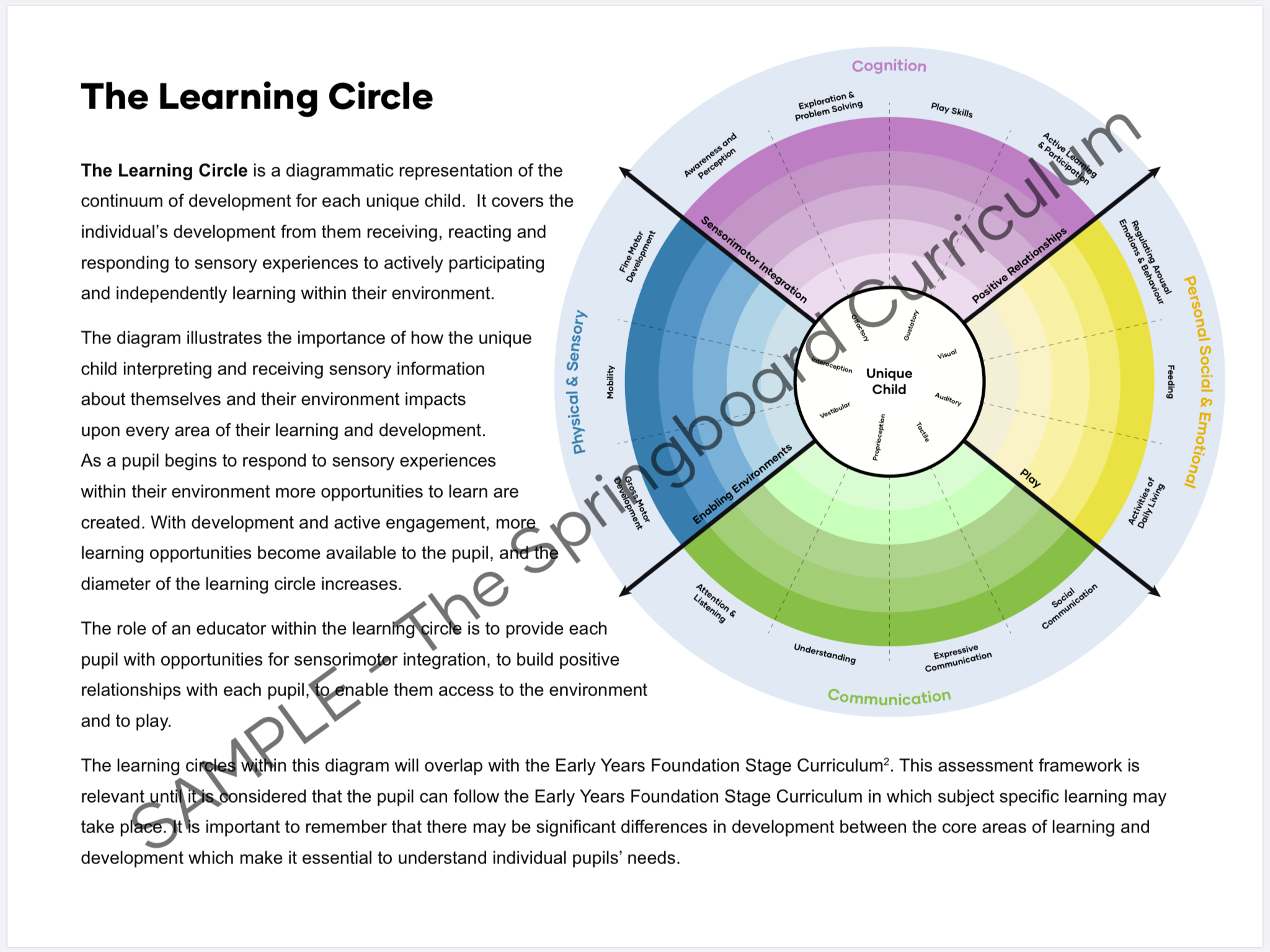Assessment
& effective learning and development.
Charlotte and I write about Effective Learning and Development in Chapter 5 of The Springboard Curriculum because it is really important to understand if the educational and therapeutic approaches that we are providing are of benefit to our pupils learning and development. We also have The Springboard Curriculum: Assessment Framework coming very soon!
As educators, we want out pupils to reach their maximum potential and we want to provide them with opportunities to develop skills that are important for life-long learning. In special educational needs, we need to be really aware of small but significant steps to learning. There is often pressure to write specific learning outcomes for each child during every session throughout the day. Not only is this time consuming (we’ve all done it) but it can also mean that you miss really valuable teaching and learning opportunities.
Can we become TOO fixated on outcomes?
Yes.
If we begin a school day with a preconceived plan of a specific skill that we want a pupil to achieve, it can be to the detriment of a pupil’s learning. This is because as educators it means that we are going to be:
Less attuned to the pupil and their needs on that specific day. In special educational needs, we know that there are a lot of factors that can influence how a pupil engages and responds throughout the day.
Be less responsive to the pupil’s needs in the moment of an activity.
Be too busy with our own agenda to be able to playfully interact in a way that promotes active engagement.
Likely to not set the pupil the just-right challenge or the just-right success.
Which will ultimately lead to challenges in regulation and stress if their real or perceived experience is that they are unable to meet the demands of the environment.
What happens if….
we don’t have preconceived outcomes in sessions?
Pupils will be developing on what they can already do.
Pupils will have agency.
Pupils will be doing it joyfully which means it will more likely be remembered.
Pupils will demonstrate adaptive responses to the environment.
Pupils will surprise us!
We will observe who a pupil wants to be and what is important to them at that moment in time.
They demonstrate an internal drive and motivation to do something which is more powerful and has more long term benefits than doing something for external reward.
Pupils will demonstrate motivation, engagement, persistence, problem-solving.
Pupils will repeat, practice, rehearse, persist until they have experienced the just-right success.
Pupils will continue to show evidence of their new learning.
Planning for effective learning and development.
Build a relationship with each pupil and know exactly where they are at in their current level of learning across all curriculum areas.
Be responsive to how each pupil is learning on a specific day and what they are motivated by.
Create a learning environment that allows pupils to show evidence of learning towards ANY curriculum area at ANY time of the day. Learning happens all the time, not just in the sessions that you have timetabled and might happen when you least expect it.
Resource activities so that they can be used in different ways to adapt to each pupil and empower your team to be creative.
Follow their lead. This means TRULY following their lead then offering them something new that builds on what they are doing.
Set functional and meaningful goals with the family that are really going to enhance their joyful participation in life.
Team Meeting
Frequently sit down as a team, if possible daily, to record learning observed throughout the day. This is an opportunity to make sure that everyone in the team knows where each pupil’s current level of learning is.
Collaborate with the child’s family and the multi-disciplinary team to understand what comes next.
If you are enjoying our content, The Springboard Curriculum is available to buy here as an immediate digital download. You can follow the link to view sample pages before you buy. The reason we decided to share our work? To allow educators to use their time creatively to maximise play and tailor the learning activities to the strengths and challenges of each pupil.
£1 of every sale goes to the school’s charity to give back to the educators and pupils who inspired the curriculum.
